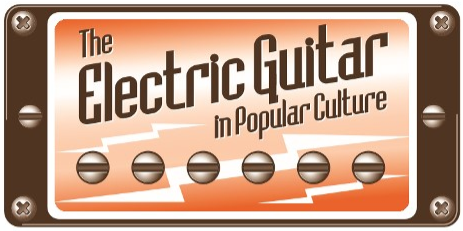
Panel 06 - Gender, Sexuality, and the Electric Guitar
Queering Guitar Noise, Reevaluating Punk Rock
Start Date
28-3-2015 1:30 PM
Description
Steve Waksman’s This Ain’t The Summer of Love (2009) critically examines the use of guitar noise in punk rock through the lenses of youthfulness, power and egalitarianism. Arguing punk and metal are defined along a continuum, in conjunction with and in opposition to each other, his thesis-driven historical project is predictably shaped by American hardcore. Though citing the importance of Lenny Kaye’s Nuggets compilation to carving out punk genealogy, Waksman under-acknowledges New York’s underground arts scene and its convergences with the gay community. This omission is unsurprising, as his guitar scholarship builds momentum through the “technophallus”: a neologism indebted to the gendered and sexual possibilities of 1970s guitar heroics, deployed to summarize aesthetic, political and ethical relationships with the instrument. Hardcore’s punk orthodoxy reproduces the technophallus’ heteromasculinist exclusions through DIY culture, suburban domesticated space and slam-dancing. This paper critiques the technophallus, and its inability to exhaustively capture performative possibilities on the electric guitar, by drawing an alternative history of punk which decentralizes hardcore. The guitarists of New York’s No Wave movement (e.g. China Burg, Lydia Lunch, Arto Lindsay) allow for the recontextualization of guitar noise as a queered (dis)orientation towards the guitar, part of a queered guitar history. Drawing on Jose Esteban Muñoz and Lee Edelman’s work with queer utopias, this paper discusses the noisiness of No Wave as queerly non-reproductive –– refusing guitar heroics’ genealogical project of canonism and legacy-making. By adopting a (dis)orienting approach to guitar technique, these guitarists detach themselves from established guitar vocabularies to create improvisational languages uninterested in standardization and reproduction. A queer theoretic approach will recover these lost narratives, facilitating a more rounded discussion of guitar history, along with a better understanding of contemporary developments such as boutique pedals with broadening sonic capabilities and mainstreamed indie music.
Queering Guitar Noise, Reevaluating Punk Rock
Steve Waksman’s This Ain’t The Summer of Love (2009) critically examines the use of guitar noise in punk rock through the lenses of youthfulness, power and egalitarianism. Arguing punk and metal are defined along a continuum, in conjunction with and in opposition to each other, his thesis-driven historical project is predictably shaped by American hardcore. Though citing the importance of Lenny Kaye’s Nuggets compilation to carving out punk genealogy, Waksman under-acknowledges New York’s underground arts scene and its convergences with the gay community. This omission is unsurprising, as his guitar scholarship builds momentum through the “technophallus”: a neologism indebted to the gendered and sexual possibilities of 1970s guitar heroics, deployed to summarize aesthetic, political and ethical relationships with the instrument. Hardcore’s punk orthodoxy reproduces the technophallus’ heteromasculinist exclusions through DIY culture, suburban domesticated space and slam-dancing. This paper critiques the technophallus, and its inability to exhaustively capture performative possibilities on the electric guitar, by drawing an alternative history of punk which decentralizes hardcore. The guitarists of New York’s No Wave movement (e.g. China Burg, Lydia Lunch, Arto Lindsay) allow for the recontextualization of guitar noise as a queered (dis)orientation towards the guitar, part of a queered guitar history. Drawing on Jose Esteban Muñoz and Lee Edelman’s work with queer utopias, this paper discusses the noisiness of No Wave as queerly non-reproductive –– refusing guitar heroics’ genealogical project of canonism and legacy-making. By adopting a (dis)orienting approach to guitar technique, these guitarists detach themselves from established guitar vocabularies to create improvisational languages uninterested in standardization and reproduction. A queer theoretic approach will recover these lost narratives, facilitating a more rounded discussion of guitar history, along with a better understanding of contemporary developments such as boutique pedals with broadening sonic capabilities and mainstreamed indie music.

